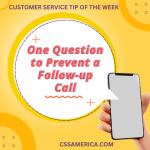You go to a hospital with a broken bone, and you expect them to heal it. You go to the E.R. with pain, and you expect the pain to be relieved. You get admitted with an infection, and you expect them to provide a cure.
These are all clinical outcomes. They are all the reasons why patients go to hospitals. They are the ultimate product of the hospital.
But they are not all that matter to the customer. In a way, they are the most basic expectation of the patient. Why would a patient go to a hospital with a broken bone, pain, or an infection if they DIDN’T expect to get this issue remedied?
In the article “Quality hospital care doesn’t ensure patient satisfaction” (on www.fierehealthcare.com), the point it made that what drives patient satisfaction often has little to do with the quality of the care itself. Florida ranks 8th nationally in quality of care, but it ranks 49th in patient satisfaction according to the study quoted in the article. "This conclusion underscores the need for hospitals to engage in regular patient satisfaction surveys rather than assume patients are satisfied with their medical care simply because the hospital meets a particular standard of clinical quality," the study’s authors wrote.
Think about your hospital, your organization, your business – even if you don’t work in healthcare. Just because the patient got the medication at your clinic doesn’t mean they’d like to return to your location. Just because the fan liked the team’s performance on the basketball court doesn’t mean they’re a raving fan of your organization. Just because the student liked the course he took doesn’t mean he loves your community college.
Think beyond the product when you’re thinking about how to drive higher levels of customer satisfaction, loyalty, and repeat business. Survey and engage in improvement efforts which address service processes and staff as well.
Go beyond the product.
Interested in improving your company’s customer service? See more information at: http://www.cssamerica.com/
Check out our new customer service book at http://www.amigreatat.com/





















